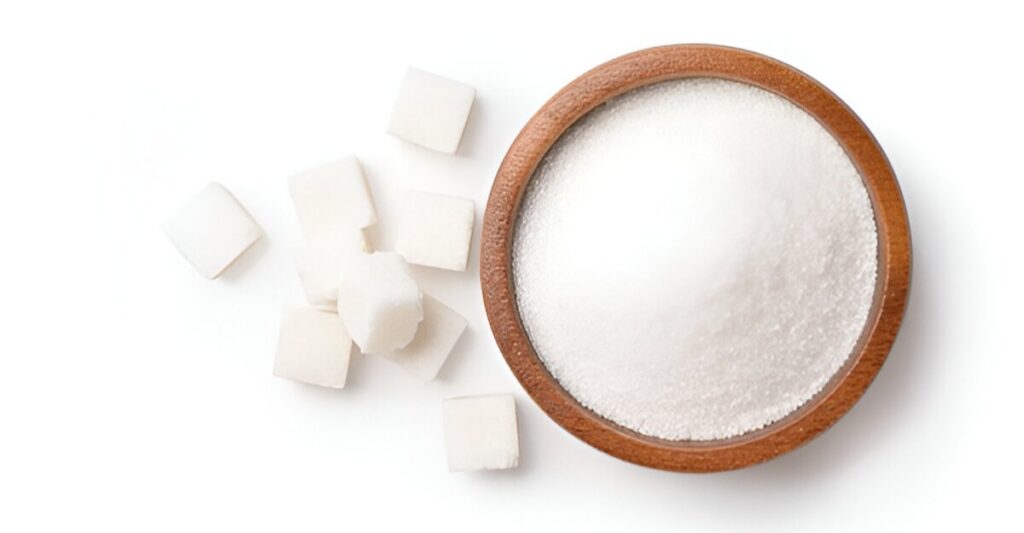Sugar is everywhere—sneaking into your morning coffee, hiding in processed snacks, and even masquerading in “healthy” foods like yogurt. While it’s tempting to indulge in sweet treats, understanding how sugar affects your body is crucial for maintaining long-term health. From immediate energy surges to chronic health risks, sugar’s impact is far-reaching. In this article, we’ll explore the science behind sugar’s effects, uncover hidden consequences, and share actionable tips to manage your sugar intake for a healthier you.
What Happens When You Consume Sugar?
When you eat sugar, your body breaks it down into glucose, a simple sugar that serves as a primary energy source. This process begins almost immediately, triggering a cascade of reactions:
- Blood Sugar Spike: Consuming sugary foods or drinks causes a rapid rise in blood glucose levels. Your pancreas responds by releasing insulin, a hormone that helps cells absorb glucose for energy or storage.
- Energy Surge and Crash: The quick influx of glucose delivers a burst of energy, often followed by a crash as insulin clears sugar from your bloodstream, leaving you feeling sluggish or craving more sugar.
- Brain Reward System: Sugar stimulates the release of dopamine, a feel-good neurotransmitter, which can make sweets feel addictive and drive cravings.
While these short-term effects are noticeable, the real concern lies in how excessive sugar consumption impacts your body over time.
The Long-Term Effects of Sugar on Your Body
Regularly consuming too much sugar can lead to a host of health issues. Here’s a closer look at how sugar affects your body in the long run:
1. Weight Gain and Obesity
Sugar is calorie-dense but often lacks nutritional value, making it easy to overconsume. High-sugar diets are linked to increased fat storage, particularly visceral fat around the abdomen, which raises the risk of obesity. Fructose, a type of sugar found in high-fructose corn syrup, is metabolized by the liver and can promote fat accumulation if consumed in excess.
2. Increased Risk of Type 2 Diabetes
Chronic sugar intake can overwork your pancreas, leading to insulin resistance, where cells become less responsive to insulin. Over time, this can elevate blood sugar levels and increase the risk of type 2 diabetes. Studies show that sugary beverages, like sodas, are particularly harmful, with just one daily serving raising diabetes risk significantly.
3. Heart Health Concerns
Excess sugar doesn’t just affect your waistline—it’s a threat to your heart. High sugar intake is associated with elevated triglyceride levels, higher blood pressure, and increased inflammation, all of which are risk factors for heart disease. The American Heart Association recommends limiting added sugars to 25 grams per day for women and 36 grams for men to protect cardiovascular health.
4. Impact on Mental Health
While sugar may temporarily boost your mood, overreliance can harm mental health. Research suggests that high-sugar diets may increase the risk of depression and anxiety, possibly due to inflammation and blood sugar fluctuations that affect brain function. A balanced diet with minimal added sugars supports better cognitive health.
5. Skin and Aging
Sugar can accelerate aging through a process called glycation, where sugar molecules bind to proteins like collagen, making skin less elastic and more prone to wrinkles. Diets high in sugar may also exacerbate acne by increasing inflammation and oil production in the skin.
6. Dental Health
Sugar is a leading cause of tooth decay. Harmful bacteria in your mouth feed on sugar, producing acids that erode tooth enamel. Over time, this can lead to cavities and gum disease, making oral hygiene and sugar moderation essential.
Hidden Sugars: Where They Lurk
One of the biggest challenges in managing sugar intake is identifying hidden sources. Added sugars often hide in foods you might not suspect, such as:
- Condiments: Ketchup, barbecue sauce, and salad dressings can contain significant amounts of sugar.
- Packaged Snacks: Granola bars, flavored yogurt, and even savory crackers often have added sugars.
- Beverages: Sodas, energy drinks, and even “healthy” smoothies can be loaded with sugar.
Reading nutrition labels is key. Look for terms like sucrose, high-fructose corn syrup, maltose, or dextrose—these are all forms of sugar. The American Heart Association advises checking the “added sugars” line on labels to track your intake.
How to Reduce Sugar’s Impact on Your Body
Understanding how sugar affects your body empowers you to make smarter choices. Here are practical tips to cut back and protect your health:
- Choose Whole Foods: Opt for fresh fruits, vegetables, lean proteins, and whole grains, which are naturally low in added sugars and rich in nutrients.
- Swap Sugary Drinks: Replace sodas and sweetened teas with water, herbal teas, or sparkling water with a splash of lemon.
- Satisfy Sweet Cravings Naturally: Reach for fruits like berries or apples, which contain natural sugars along with fiber to slow absorption.
- Read Labels Carefully: Aim for products with little to no added sugars. Compare brands to find lower-sugar options.
- Cook at Home: Preparing meals yourself gives you control over ingredients, helping you avoid hidden sugars in processed foods.
- Practice Moderation: Enjoy sweets occasionally, but keep portions small to minimize health risks.
The Bottom Line
Sugar’s effects on your body go beyond a quick energy boost. From weight gain and diabetes risk to heart disease and skin issues, excessive sugar can take a toll on your health. By understanding how sugar affects your body and making mindful choices, you can reduce its impact and feel your best. Start small—swap one sugary snack for a healthier option or check a label today. Your body will thank you.
Ready to take control? Share your favorite low-sugar recipes or tips in the comments below, and let’s inspire each other to live healthier!



